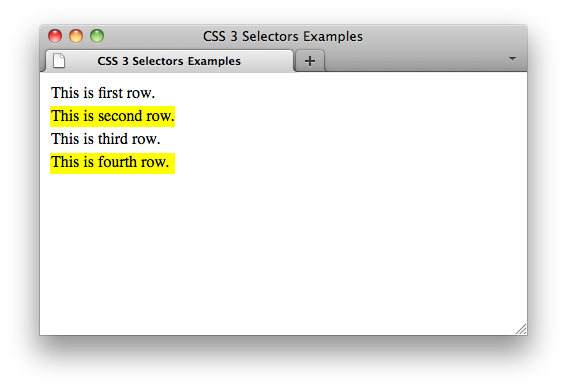CSS/Selectors/pseudo-classes/:nth-child
Appearance
Pseudo-class :nth-child()
The :nth-child() pseudo-class represents an element that has an+b siblings before it in the document tree, for any positive integer or zero value of n, and has a parent element.
Syntax
selector:nth-child(an+b){ properties }
Point, Note
- The examples of an+b are as follows:
- :nth-child(2n) /* represents every even element */
- :nth-child(even) /* same, represents every even element */
- :nth-child(2n+1) /* represents every odd element */
- :nth-child(odd) /* same, represents every odd element */
- :nth-child(10n-1) /* represents the 9th, 19th, 29th, etc, element */
Example
[style.css]
tr:nth-child(2n){
background-color: yellow;
}
[index.html]
<body>
<table>
<tr><td>This is first row.</td></tr>
<tr><td>This is second row.</td></tr>
<tr><td>This is third row.</td></tr>
<tr><td>This is fourth row.</td></tr>
</table>
</body>
CSS defines the :nth-child() pseudo-class selector in 6.6.5.2. :nth-child() pseudo-class.
